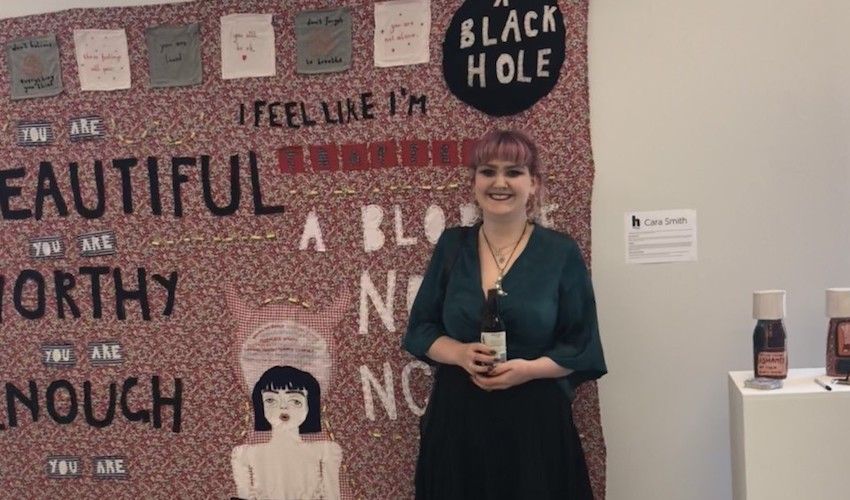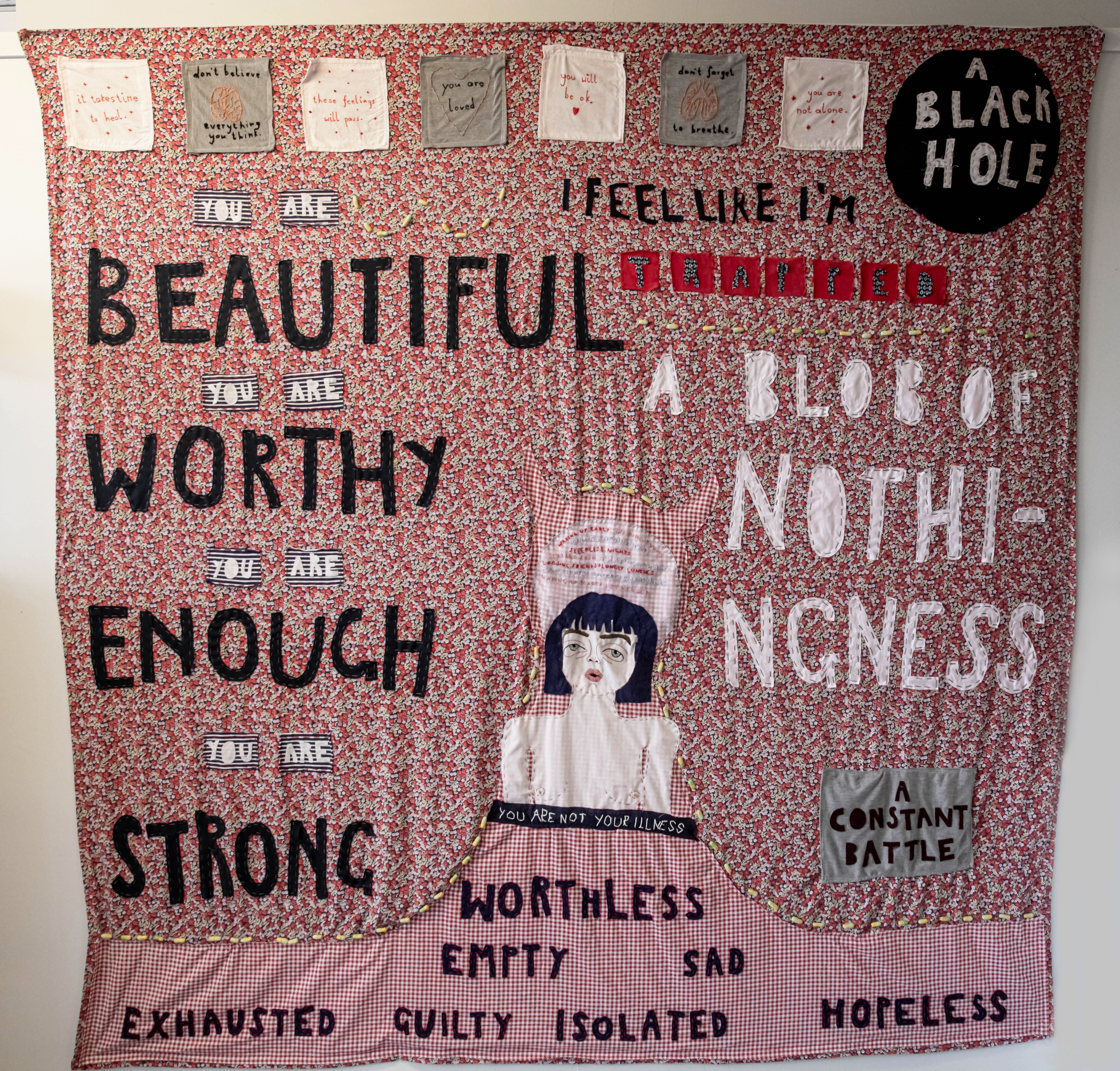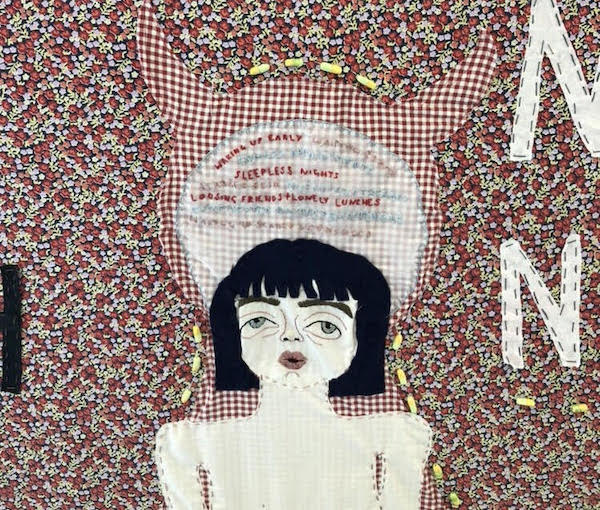


A tapestry hand-sewn by a 17-year-old art student with “mean words”, positive phrases and ceramic pills to show the “reality” of life with a mental illness is one of the works on display at Fort Regent as part of an interactive textile exhibition.
17-year-old Cara Smith’s tapestry is part of a collective exhibition organised by Heather Brown, a fine arts graduate and ‘Ramparts’ member.
The textile exhibition - which opened last Friday at Fort Regent’s Art Gallery and can be seen until 29 February – includes the work of local artists such as Molly Cornick, Caitlin Fitzsimmons, Sara Cionna and others.
A 3D sculpture hanging from the ceiling, a crochet picture of two dogs kissing and a hanging pink tapestry covered in butterflies are among the work on display.
Cara’s tapestry - the largest piece on display in the exhibition - is part of her project to raise awareness of mental health, a subject close to her heart as she was diagnosed with depression and anxiety at just 15. A smaller piece on the same subject also features in the exhibition.
While her pill bottles featured facts and statistics about mental health “to try and educate people”, Cara – who is on currently in her final year on the Art and Design course at Highlands College - wanted her tapestry to be “more personal” so that people could relate to it.

Pictured: Cara's tapestry can be seen at Fort Regent until the end of the month.
Created out of a double duvet cover found in a charity shop, it features little ceramic pills and hand-stitched words along with positive phrases and real quotes from people describing how a mental illness feels.
“I wanted to show what it’s like to live with a mental illness,” Cara explained. “It reflects the reality of day to day life, hearing the mean words go around your head and trying to not let it take control.
“The writing is more of a personal element as it includes the things that I felt when I was having bad days.”

Pictured: Cara said she wanted her tapestry to show "what it’s like to live with a mental illness".
“[Mental health] is something I have struggled with especially for the last few years,” Cara added. “I think it is important to talk about how you're felling and not keep things to yourself, I suppose I just wanted it to make people think and start important conversations.”
The tapestry is one of Cara’s first tries at textile art, a practice she first tapped into for her end of year project at college, inspired by the work of Tracey Emin and her “bold statements”.
“I love the processes of textile art, there’s such a wide variety of what you can do with it,” Cara said. “I learned how to sew from a young age, so I had some basic knowledge of what I was doing. When I decided to include textiles in the project I learned how to embroider by hand and on the machine.
“Once I knew what I was doing I could spend hours stitching away. I loved the process of hand embroidery, most of the layers on the tapestry are hand stitched on, this does take a lot longer, but I love the effect of it when it’s done.”
Comments
Comments on this story express the views of the commentator only, not Bailiwick Publishing. We are unable to guarantee the accuracy of any of those comments.